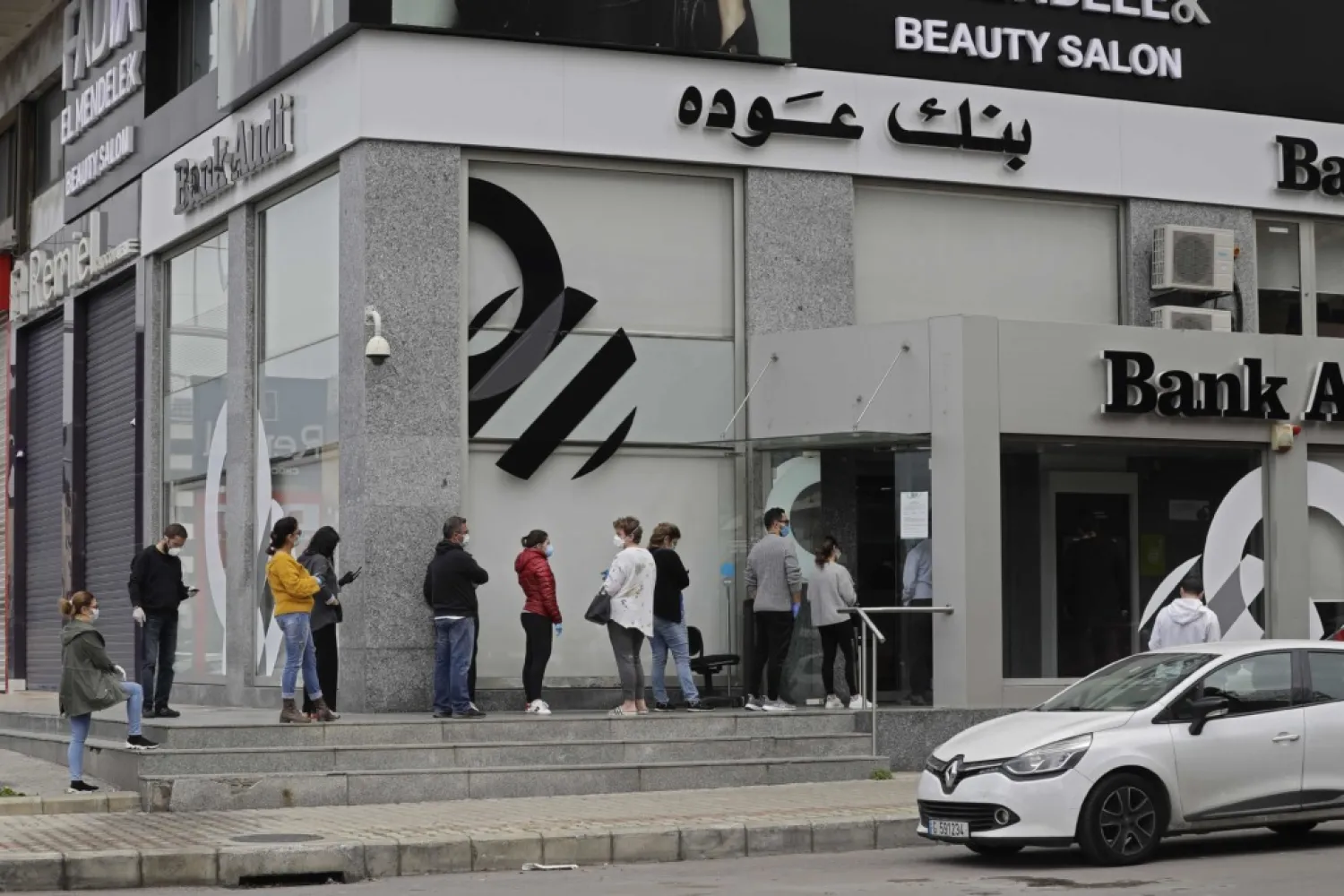A French court has ordered a Lebanese bank to pay $2.8 million to a client residing in France, in the first-known international ruling against informal capital controls imposed by Lebanese banks since 2019.
The Nov. 19 ruling, not yet published but seen by Reuters, orders Lebanon's Saradar Bank to pay the Syrian claimant all the funds she had deposited in two accounts at the bank in 2014.
Saradar Bank will appeal the judgment, "which results from a misapplication of the Lebanese law," the bank said in a written statement to Reuters.
Lebanon's financial system collapsed in 2019 after years of unsustainable financial policies, and banks imposed tight controls on accounts, including a de facto ban on withdrawals of dollar-denominated deposits and limits on withdrawals in the local currency.
These controls were never formalized with legislation and have been challenged in local and international courts by savers who have sought to gain back their money promptly in hard currency, rather than in the Lebanese pound which has lost more than 90% of its value in two years.
Attempts to formalize capital controls have repeatedly failed, including last week by a parliamentary committee amid opposition from groups representing depositors' rights, who said the draft legislation would immunize banks from prosecution while failing to secure people access to their money.
"This ruling means that Lebanese depositors clearly have recourse in international courts, and while every case is different from the other, it is an encouraging step for a number of claims spanning from Europe to the Gulf and US," lawyers for the depositor Nada Abdel Sater and Jacques-Alexandre Genet said in joint written remarks to Reuters.
They asked that the claimant's name be withheld over privacy concerns. Abdel Sater is representing several clients in similar cases spanning three continents and said British courts recently accepted three cases put forward by depositors against Lebanese banks.
Saradar had argued that the case brought in France should be reviewed by a Lebanese court, but the French court said it was competent because the claimant had been approached by employees of the bank and signed contracts in Paris and was a long-time resident of France.
Saradar had terminated her accounts and deposited the funds in cheques with a Beirut notary. The French ruling said that the unilateral move by the bank, opposed by the claimant, meant the bank had not fulfilled its obligations.
Due to the informal controls in Lebanon, cheques cannot be cashed out in dollars and are instead sold on the market at a discount of about three-quarters of the total price, meaning the claimant would have lost much of her money, had she accepted.
"As a result, the bank will be deemed to have failed to fulfill its obligation of restitution (of funds) incumbent upon it," and is ordered to make the payout, the ruling said.









